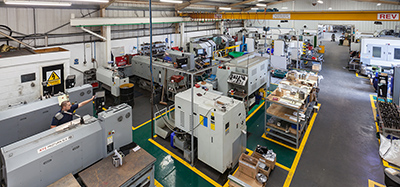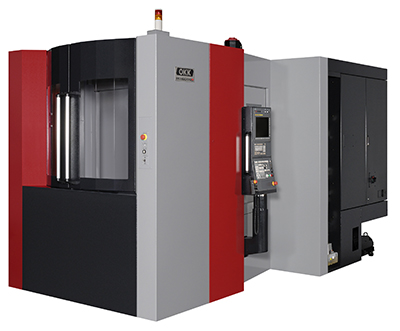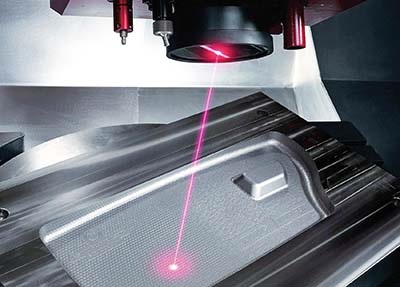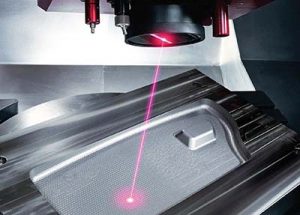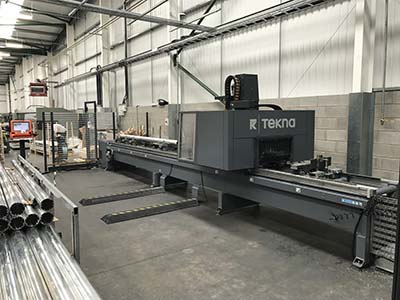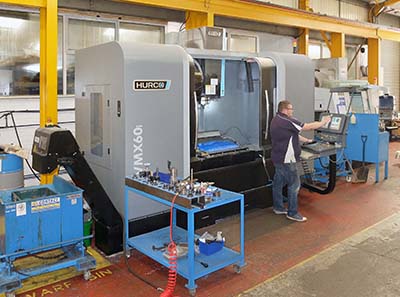When Gordon Robinson formed D&D Engineering over 30 years ago to design, develop and manufacture bespoke conveyor systems for the food processing industry, he had no ambition to machine parts in-house. His reliance on local subcontract manufacturing companies to provide the components needed worked perfectly well in the company’s formative years. This was to change when he was joined in the business by his son, and current managing director, Mark Robinson.
With Mark on-board, plans were developed to grow the business and, within seven years, D&D Engineering found itself too large for its original premises. As a result, the decision was taken to buy land and create a purpose-built factory.



“It was a risk when we mortgaged to buy our current premises, but with the business growing it was a calculated one which paid off quickly – the 25-year loan was repaid in 12 years,” says Mark Robinson.
The growth of the company had come not only from increased sales of conveyor systems, but from the decision to begin bringing machining in-house for its own production before being developed into a full subcontracting resource. And with Hull’s economy expected to benefit from its year as the City of Culture, and new manufacturing businesses setting up in the area, this growth looks set to continue.
D&D Engineering’s first machine tool investment was to bring in some turning capacity in the form of XYZ SLX ProTurn lathes with ProtoTrak control.
“We found the ProtoTrak control easy to use as a first step into CNC machining,” says Robinson. “Not only that, but the ethos of XYZ Machine Tools and the support and enthusiasm from everyone there reassured us that we were making the right decision.”
With this initial investment satisfying the turning requirement at the time, attention turned to milling and, the positive experience of the ProtoTrak control meant that choosing SMX bed mills was an easy decision.
“ProtoTrak is such a wonderful control for producing contours, pockets, holes and a host of other features on the parts for our conveyor systems, with programming being very straightforward,” says Robinson.
With experience of ProtoTrak turning and milling, and the business still growing – both for its own products and increasingly for customers from the wind power, oil and gas, petrochemical and food industries – D&D looked to develop its machining capability further. This next step saw two XYZ MiniMill 560 vertical machining centres installed with fourth-axis attachments.
The new capacity brought in larger batch sizes from customers, while the versatility of the Siemens control system, which Robinson describes as “perfect for our business”, made programming at the machine easy. Additional business generated by having the MiniMills meant that D&D Engineering could invest further, with XYZ 1020 vertical machining centres joining the capacity list, closely followed by turning centre capability in the form of an XYZ Compact Turn 52 and an XYZ 250 TC. Furthermore, larger diameter turning was catered for with the arrival of an XYZ XL 1100 lathe with 2 m between centres and 1100 mm swing.
With these machines in place, new opportunities arose for D&D Engineering, prompting the company to expand its support for the food and drinks industry, with one customer from this sector providing in the region of £20,000 of subcontract business every month. Due to the elevated level of work, machine reliability was vital for Robinson, and here he cannot fault the XYZ machines and the service support that he gets, if needed.
“Many of our machines are running 18 hours a day, so we ensure that they are regularly serviced, with the highest dependency machines being on XYZ service contracts, which provide excellent value,” he states. “On top of that, the service engineers always seem willing to spend time and discuss things with us, which reflects the high level of support we get from anyone we talk to at XYZ.”
Although both the ProtoTrak and Siemens control make programming at the control a relatively simple procedure thanks to their conversational languages, D&D Engineering has also invested in offline programming through XYZ Machine Tools and, once again, this is opening up new opportunities, especially in the injection moulding sector.
With this mould tool work came a further need for investment, this time in larger capacity vertical machining centre capability. The issue was addressed with the arrival of an XYZ 2010 HD VMC. Part of XYZ’s heavy-duty range of machines, the 2010 has 2000 mm of X-axis travel (1000 and 800 mm in Y and Z). Developed for large components, such as mould tools, the machine features hardened box slideways, with six slides alone on the Y axis. At D&D Engineering, the company utilises the 30-position toolchanger to maximise run-time, with the machine running unmanned overnight on long cycle time work, then switching to shorter runs during the day.
“The XYZ machines and XYZ itself has served us very well and I can’t recommend them highly enough,” concludes Robinson. “One knock-on effect of our investment in XYZ machines has been the requirement to develop our skills set. This led to us starting an apprentice scheme several years ago and we currently have five apprentices out of a workforce of 28; a fact that we are very proud of. More positive is that many of those we have trained have stayed with us and gone on to operate and program the XYZ machines.”
For further information www.xyzmachinetools.com






